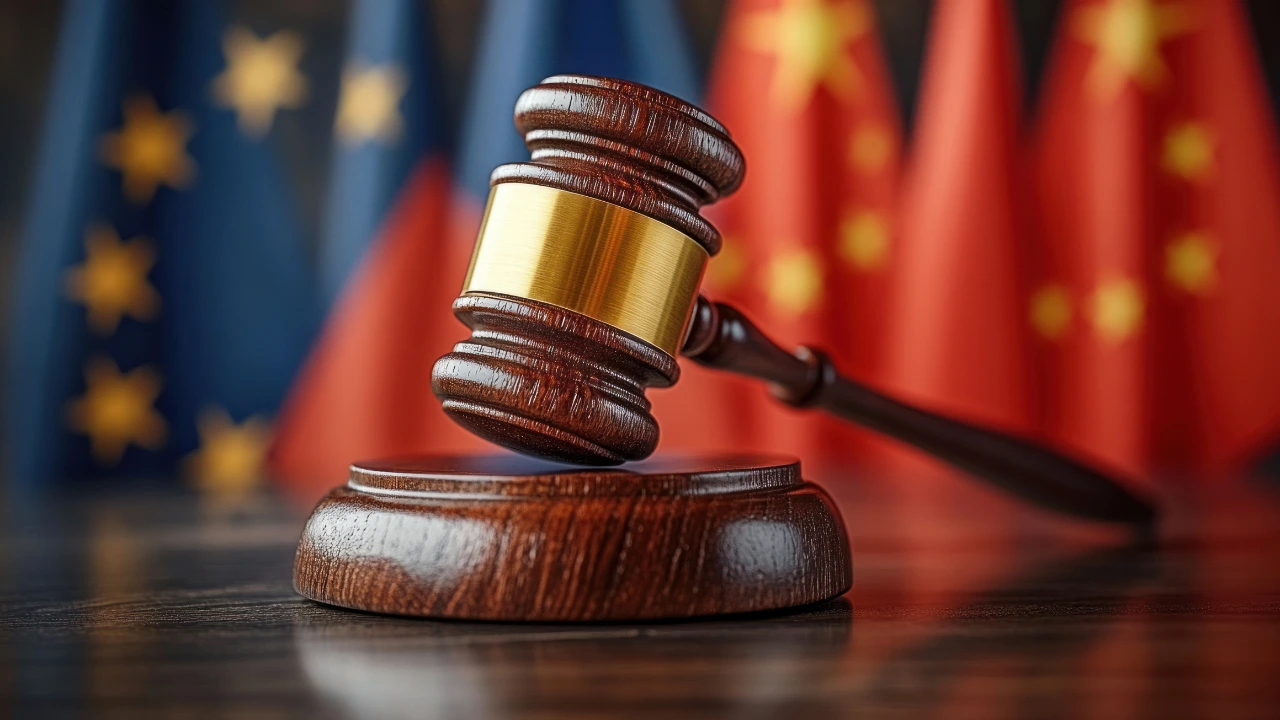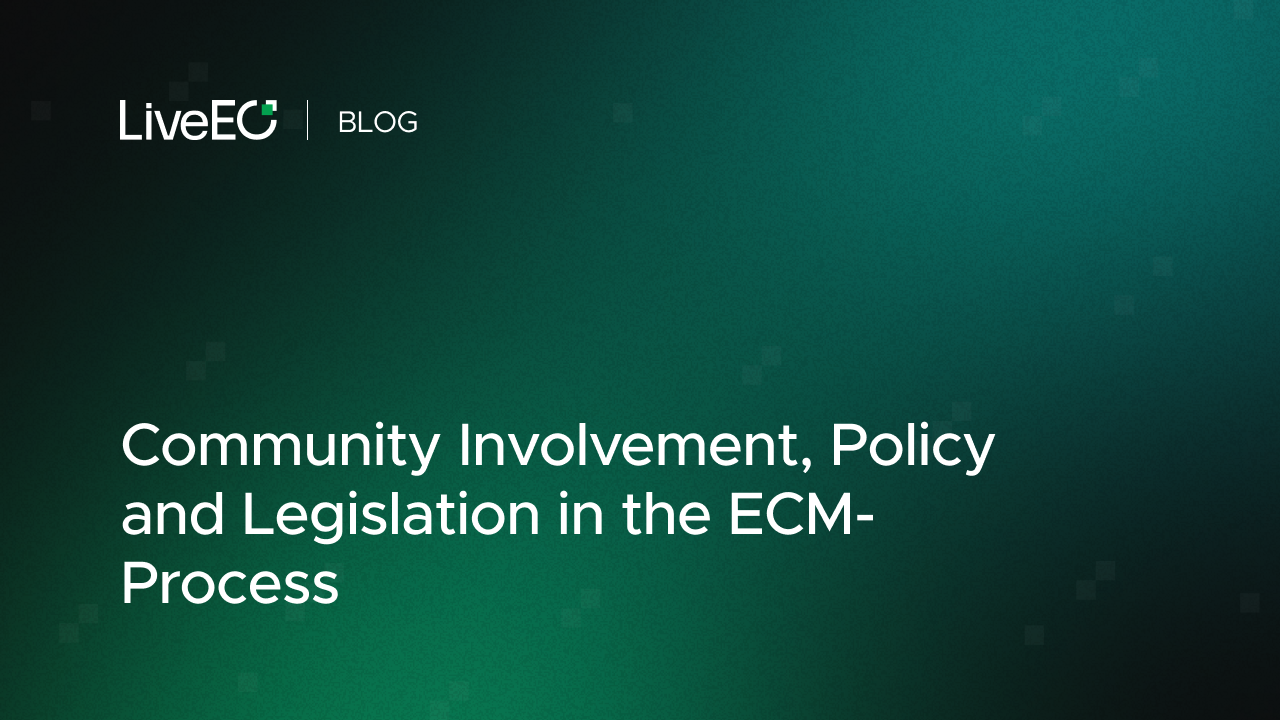
The EU Deforestation Regulation (EUDR) introduces a new standard for environmental due diligence.
Starting on 30 December 2025, companies placing wood, rubber, cocoa, cattle, soy, oil palm, coffee and several of its products on the EU market must submit precise geolocation data proving their origin is deforestation-free.
For many importers, China-an essential processing hub-is seen as a potential compliance roadblock. But is data sharing truly off the table?
The short answer: No. There is no formal ban. With the right approach, cooperation is possible.
What the EUDR Requires
To comply, companies must submit plot-level geolocation coordinates into the EU’s centralized Information System TRACES.
This applies to all relevant commodities and products and is a non-negotiable condition for customs clearance.
Without the data, products will not enter the EU.
China’s Legal Framework: Ambiguity, Not Prohibition
Some Chinese suppliers have expressed concern-or even refused outright-when asked to provide plot-level geolocation data for EUDR compliance.
Their hesitation stems from the intersection of three major Chinese laws that regulate geographic, security-related, and personal information.
- Surveying & Mapping Law
- Data Security Law (DSL)
- Personal Information Protection Law (PIPL)
While each introduces a degree of caution, none creates an outright ban on sharing geolocation data-especially when handled correctly.
1. Surveying & Mapping Law
This law treats geographic information as a matter of national security and assigns the state exclusive control over its collection and dissemination. In particular, it restricts:
- Establishment and use of non-approved coordinate systems,
- Sharing of mapping data that could be classified as state secrets,
- Foreign entities conducting or accessing mapping activities in China.
Why it raises concern:
Geolocation data - even from agricultural land-could be interpreted as “mapping information,” and if aggregated or linked to strategic infrastructure, it might be seen as sensitive.
Why it doesn’t constitute a ban:
The law mainly targets military or precise or large-scale cartographic information, not commercial land-use coordinates in agri-commodities. For private companies collecting plot-level GPS information of farms with relatively low precision and only for traceability purposes, and if such information cannot be used to indicate sensitive areas, e.g. military areas or key departments of national security, etc., the risk of falling into the law’s restrictive category is low.
Additionally, many firms are already sharing such data in practice without triggering enforcement.
2. Data Security Law (DSL)
The DSL introduces the concept of “Important Data,” which, if mishandled, could harm national security, public interest, or economic stability.
Exporting such data requires a security review by the Cyberspace Administration of China (CAC).
Why it raises concern:
The DSL’s definition of “Important Data” is vague, perhaps intentionally, and certain types of agricultural, environmental, or geographic data might fall within its scope.
Companies fear being non-compliant simply because it’s unclear whether geolocation data would be deemed as “important data” under the DSL
Why it doesn’t constitute a ban:
Not all geolocation data is “important” by default. Legal advisors (including in the Die Presse article) point out that plot-level coordinates for agricultural commodities are unlikely to be considered important data in isolation for the time being.
Additionally, the law provides a mechanism (security review) for data transfer approval-meaning companies can share data if they follow proper steps.
Again, many Chinese companies are doing so today.
{{inline}}
3. Personal Information Protection Law (PIPL)
The PIPL governs how personal information is collected, used, and exported. Several national standards explicitly include precise location data and tracking data as “sensitive personal information.”
Why it raises concern:
Plot-level coordinates tied to smallholders could be interpreted as personal information, especially whenlinked to named landowners or families. Processing of sensitive personal information would require:
- Separate and explicit informed consent from the individuals,
- Enhanced security measures for data handling,
- Justification for any overseas transfer
- Conduct security review or conclude standard contracts / obtain personal information protection certification for overseas transfer (depending on the amount of sensitive personal information being transferred).
Why it doesn’t constitute a ban:
The law does not prevent companies from collecting or sharing such data-it simply sets rules. If companies obtain the necessary consent and follow security requirements, they are allowed to process and share location data. The law is meant to protect privacy, not block transparency.
Bottom Line
These three laws introduce a chilling effect - understandable caution in the absence of precise government guidance. But none of them creates a legal prohibition against sharing farm geolocation data for EUDR purposes.
- Clarify what data is being collected (e.g., plot coordinates, not personal tracking),
- Secure appropriate consent, approvals and safeguards, and
- Use vetted, secure channels for data sharing (such as TradeAware).
Many Chinese companies are already sharing coordinates.
A recent article in Die Presse confirms that the Chinese embassy in Vienna has issued no statement against data sharing, and the EU Commission is directly engaging with Chinese stakeholders.
Furthermore, the European Commission has directly engaged China through high-level digital and data dialogues-such as the 2023 “Cross-Border Data Flow Communication Mechanism” to address business concerns and improve clarity on data flows.
These efforts suggest that regulatory caution, not prohibition, is the real hurdle.
What EU Companies Can Do
Engage Suppliers Early
Instead of assuming refusal, initiate open, constructive dialogue about geolocation data needs and capabilities. Many Chinese suppliers are willing to cooperate, but may be unsure about what’s being asked or concerned about legal repercussions. It is important to clarify that data sharing is a regulatory requirement under EUDR, not a negotiation.
Normalize the Legal Message
One of the biggest obstacles is perception, not law. Share clear, public-facing information, such as statements from the Chinese embassy in Vienna and the European Commission, that confirm there is no official ban on geolocation data sharing. By showing that compliance is not legally prohibited, you can ease concerns and help suppliers understand that with the right handling, data sharing is both safe and feasible. This is about reducing fear, not pushing boundaries.
Enable and Empower
Offer practical tools that make it easy, and safe, for suppliers to participate. Platforms like TradeAware Lite allow suppliers to securely share geolocation data without exposing sensitive information publicly. By equipping suppliers with user-friendly solutions, importers lower the barrier to compliance and help their partners contribute confidently - without breaching local laws or triggering unnecessary concern.
Diversify Supply Channels
If data concerns persist, explore suppliers in third countries (e.g., Vietnam, Côte d’Ivoire) where export restrictions are less stringent.
Conclusion: Action Beats Assumption
Geolocation sharing with Chinese suppliers is legally and operationally possible, despite a complex regulatory backdrop. A one-fits-all approach is not possible; companies should seek legal advice on a case-by-case basis.
There is no blanket prohibition - only the need for clarity, investment, and partnership.
For companies committed to EUDR compliance, now is the time to act.
Those who proactively engage and support their supply chains will be the ones best positioned when enforcement begins.
Tools like TradeAware Lite can ease Geolocation sharing for EUDR in a secure, easy to operate manner.








